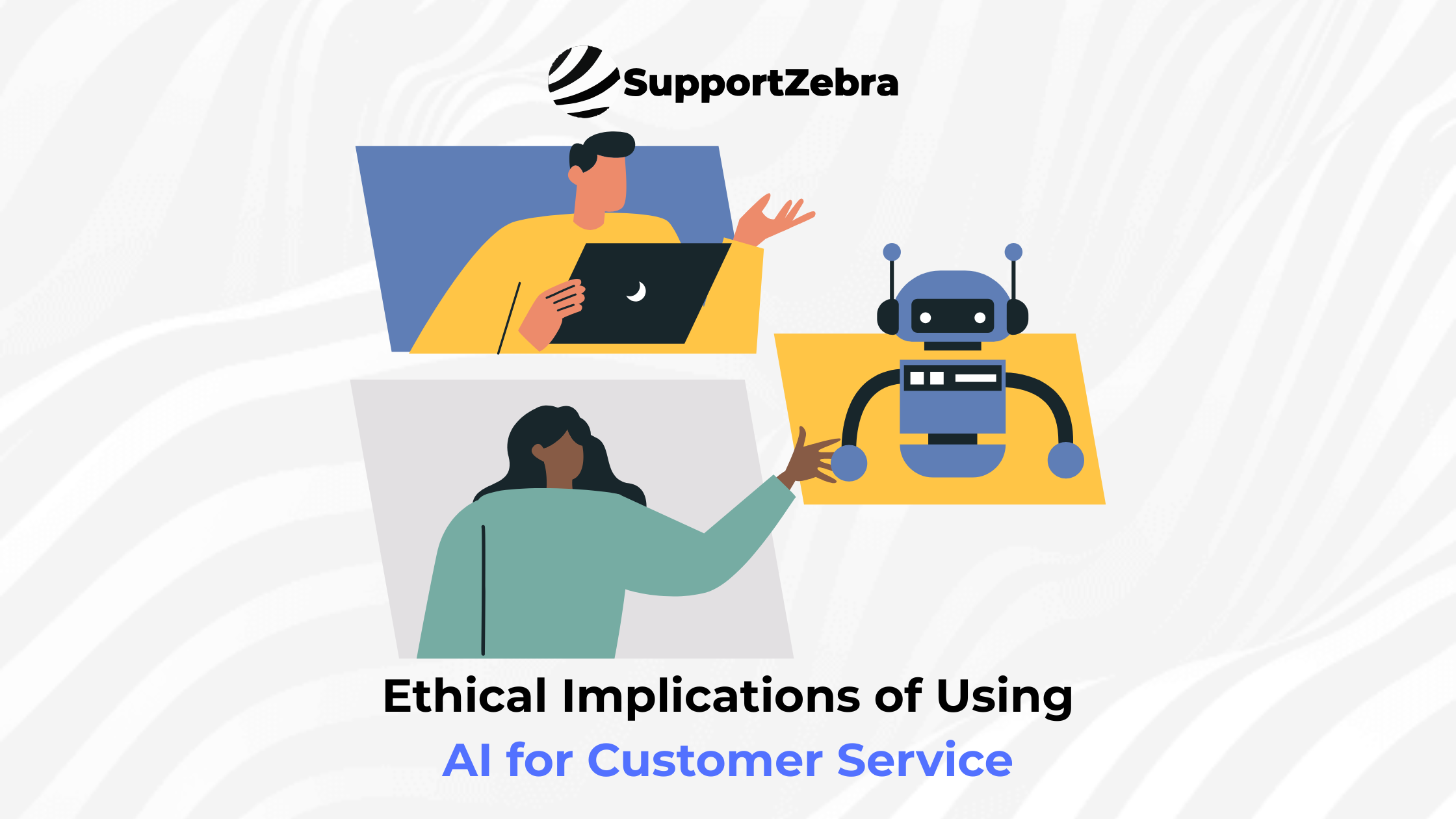Will AI Destroy Customer Service Ethics? What Every Business Needs to Know
- AI can greatly improve customer service efficiency and personalization but introduces ethical risks like bias and privacy issues.
- Transparency, fairness, and data protection are crucial for maintaining trust in AI-driven customer interactions.
- Balancing automation with human empathy helps prevent dehumanization and preserves meaningful customer connections.
- Ethical AI use requires continuous monitoring, accountability, and responsible implementation to ensure fairness and trust.
As businesses increasingly adopt AI for customer service, what ethical factors should they consider? Artificial intelligence in customer service leverages cutting-edge technologies such as natural language processing and machine learning to streamline operations and enhance service quality.
Nonetheless, addressing ethical issues to avoid bias, protect data privacy, encourage transparency, and maintain human connections is essential. Organizations can cultivate trust, reduce risks, and ensure fairness and accountability in AI-driven customer service by fostering ethical discussions.
This article examines the ethical issues related to AI customer service and discusses their impact on customer trust and corporate responsibility.
AI in Customer Service
AI in customer service offers numerous benefits, including improved customer experiences, operational efficiency, and a competitive advantage. It analyzes customer data to segment users, streamlining inquiries and providing real-time support. AI enables personalized interactions and 24/7 assistance but presents challenges like lack of human touch, biases, data privacy concerns, implementation costs, and resistance to change.
To overcome these challenges, businesses must design unbiased AI systems, comply with data privacy laws, and ensure transparency in data usage. Investing in training and smooth integration with existing processes, managing customer expectations, and maintaining high data quality is crucial for successful AI deployment.
Ethical Implications of Using AI for Customer Service
Using AI in customer service raises critical ethical questions that companies must consider when using these technologies responsibly and moderately. As outlined in the sources, here are some of the main ethical issues related to implementing AI for customer service.
- Privacy and Data Security
AI systems rely on large datasets, often containing sensitive customer information, raising ethical concerns about data privacy and consent. This highlights the importance of secure data storage, data collection, and usage transparency.
- Transparency
Customers must recognize that interactions with AI are with a machine, not a human. This distinction is vital for building trust and shaping perceptions of AI-generated information. Transparency in AI decision-making is critical to fostering understanding of its functions.
- Bias and Fairness
AI systems can embed biases, leading to unfair treatment based on gender, race, or age. To ensure ethical AI use in customer service, it’s essential to regularly evaluate and update these systems to eliminate biases and ensure equitable treatment.
- Job Displacement
Implementing automation in customer service roles may cause job losses as AI becomes more efficient. This shift could necessitate workforce retraining and have significant economic consequences, influencing the overall economy and the transition to new job roles.
- Dependence and Dehumanization
Excessive dependence on AI for customer service may lead to a lack of personalization, undermining human agents’ nuanced understanding and empathy. Combining AI with human oversight allows us to maintain empathetic interactions when necessary.
- Accountability
In a service landscape dominated by AI, establishing accountability for mistakes and legal liability can be complex, requiring a clear identification of who is responsible for errors and adapting legal systems to meet emerging challenges.
Addressing the ethical implications associated with AI requires meticulous planning, continuous monitoring, and implementing optimal AI governance strategies. To integrate them into customer service environments seamlessly, AI systems must uphold ethical standards, fairness, and transparency.
SupportZebra's Commitment to Ethical Customer Engagement
The influence of AI on customer service necessitates a focus on ethical principles. Although AI enhances efficiency and boosts customer satisfaction, it also introduces specific challenges. Companies must emphasize ethical guidelines, transparency, and fairness in AI strategies. Engaging in continuous dialogue, regular evaluations, and stakeholder collaboration will help promote responsible AI practices and uphold trust.
At SupportZebra, we are committed to ethical customer engagement, prioritizing the satisfaction and well-being of our customers in every interaction. We show our commitment through trained customer support agents who uphold community standards for a safe environment. Our personalized services help businesses manage customer experiences effectively and affordably. By prioritizing exceptional service and utilizing the latest technology, we enhance interactions, build strong relationships, and foster a culture of respect and excellence.
Discover the next level of AI for customer service with SupportZebra—get in touch with us now to enhance your customer engagement tactics!

